- Home
- Captain W E Johns
Biggles In The Cruise Of The Condor (02) Page 4
Biggles In The Cruise Of The Condor (02) Read online
Page 4
Algy felt the aeroplane wobble as the controls relaxed, and then sank back limply as it picked up again, knowing only too well how near they had been to disaster at the very onset of their quest. He pulled on the helmet and goggles the pilot had thoughtfully placed in the cockpit in readiness, and a moment later saw Dickpa's head similarly garbed. Biggles looked back over his shoulder and grinned at his passengers. Then he held his left hand high in the air, thumb turned upwards, with a triumphant gesture, and they returned the thumbs-up salute, which means the same thing the whole world over.
CHAPTER V
TROUBLE
WITH his altimeter registering five thousand feet, Biggles looked a trifle apprehensively over the side of his cockpit at the unusual scene below as he headed westwards in the amphibian he had purchased. Immediately below, a broad, winding silver ribbon marked the course of the mighty Amazon, the largest river in the world. On both sides lay the forest, dark and unfathomable, like a great sombre pall over the face of the earth, merging into vague purple and blue shadows at the remote horizon. There was nothing else; not a road, a field, or an isolated tree that might be taken for a landmark. The utter sameness of it all had appalled him at first, but now he was growing accustomed to it, for they were far up the river, approaching Manaos, the strange city founded by gold-hunters hundreds of years ago in the savage heart of a savage continent. Biggles glanced at Algy, sitting in the second pilot's seat at his left hand, and smiled, for their plans had gone like clockwork since they had left England a month before. Even the weather had been on its best behaviour. They had taken ship at Liverpool, and on arrival at New York found that the huge case containing the amphibian had already been opened by the industrious Smyth, Biggles's old flight-sergeant of 266 Squadron, and the machine awaiting erection.
Algy had glanced over her lines while Biggles explained the reason for his choice. She was a five-seater that had been specially built for a wealthy private owner who had been killed in an accident on a motor race track before he had even time to take delivery. Consequently Biggles had been able to get a bargain. The side-by-side cockpits in the nose, with dual controls, could be reached from the snug enclosed cabin in the boatshaped hull. The cabin itself was luxuriously equipped for three passengers, but Biggles had had most of the unnecessary furniture removed to lighten the load and make room for the spare parts, equipment, and stores necessary for their adventure. A rather elaborate case containing four parachutes he had left untouched, as well as a cabinet holding a Very pistol, signal flares, and navigation instruments. The machine was a twinengined monoplane flying-boat. It had a speed ample for their requirements. Speed was not a matter of such importance as reliability. There was a special undercarriage for ground landing; this was of the retractable type—that is to say, it could be lowered or raised at the will of the pilot according to whether he wished to come down on land or water.
Algy agreed that Biggles had just cause to be proud of his bargain, for it could not have suited their purpose better had it been specially designed for the undertaking. There had been some discussion about the selection of a suitable name, but the choice had finally been left to Dickpa, who had decided on the Condor, after the huge bird of that name which makes its home in the mighty Andean Range.
A fortnight's hard work and the machine was ready to take the air. The tests were satisfactory in every way, and they had forthwith taken off on the long voyage southwards to the land of their quest.
Biggles nudged his flying partner and nodded, his eyes fixed on a spot directly ahead, and Algy, following his glance, saw in the distance an expanse of white buildings which he knew must be Manaos, their immediate destination and the last point of civilization they would touch before plunging into the wilds of the vast Brazilian hinterland. The landing of the amphibian caused a considerable
commotion, people hurrying from their homes to the waterside, and it was clear that an aeroplane was a very rare bird in the town so far removed from civilization. Canoes and other small craft flocked about them as the pilot taxied slowly towards what seemed to be a suitable anchorage, and, in spite of the warning shouts of Dickpa, who had climbed out on to the hull, some of them were in imminent danger of being run down. A small launch spluttered up, with an official in a gaudy uniform standing in the bows. He shouted something unintelligible to Biggles, but Dickpa evidently understood, for he cautioned the pilot to stop.
"I'm afraid he's going to be awkward," he said, frowning. "That's the worst of these fellows," he added; "they must exercise their powers on every possible occasion. We shall have to listen to what he has to say."
The appearance of the official did not improve at close! quarters. His uniform had been hastily flung on over' a suit of pyjamas that were none too clean, while his' face, which was unshaven and of a nasty shade of yellow, was flushed with anger.
"What do you mean, landing at this hour?" he stormed. "Don't you know I always rest at this time? You would not dare to treat the officers in your own country in this way—" He broke off with a start and stared at Dickpa with a flash of recognition in his eyes. "Ah!" he said softly, and then again, "Ah! It's you, is it?" He scowled malevolently, and, before Dickpa could frame a suitable answer, he had snapped an order to the man at the wheel. The launch swung round, nearly fouling the fragile side of the amphibian as it did so, and headed back towards the shore at full speed.
Dickpa, a frown puckering his brow, watched the departing official in perplexity. "He's new to me," he muttered, "but he seems to know me and I strongly suspect he's going to make things as awkward for us as he can. Never mind; it can't be helped. Taxi to the bank and let me get ashore. The sooner I find my
agent and ask him if he got my cable about a supply of petrol the better. If he did, we had better see about refuelling at once. I'm rather afraid we've made a mistake in coming here at all, but it was difficult to see how we could manage for oil and petrol by doing otherwise. If the men who are financing the enemy are in the town, they'll know I am here, and why. Yes, you'll have to put me ashore; the rest of you must stay aboard and look after the machine until I come back. I shall soon find out how the land lies." Still followed by a crowd of natives in small boats, they taxied in and dropped anchor near the bank, Dickpa beckoned one of the boats nearer, jumped aboard, and, after rattling some brief instruction to the startled native, was quickly put ashore. With a parting wave he disappeared in the direction of a row of small shops near the waterfront.
"I don't like the look of this," muttered Biggles to Algy as they watched Dickpa's disappearing figure. "Some of these people look capable of anything. Well, we might as well make ourselves as comfortable as we can until he comes back. My word, it's pretty hot down here on the floor, isn't it?"
An hour passed slowly, and another, but still there was no sign of Dickpa, and Biggles's face began to wear a worried look. "I don't like this," he said again. "I've a feeling in my bones that there's mischief brewing. If there is, and they try any funny stuff, they'll be sorry, that's all. That petrol would have been here an hour ago if everything had been all right," he concluded.
Algy nodded assent from where he sat watching Smyth making a minor adjustment to a turnbuckle. "It'll be dark in half an hour, too," he went on, with a quick glance at the sky.
"Hullo, what's this coming?"
A small launch had put off from the shore and was chugging its way quickly and with scant ceremony through the still lingering spectators in their miscellaneous assortment of small craft. It pulled up alongside,
and they saw at once that there was only one man in it, an elderly white man in wellworn ducks and a battered solar topee.
"Which of you is Bigglesworth?" he asked sharply. "I'm Carter, your uncle's agent. Speak up. You've no time to lose."
Biggles stepped forward quickly and helped their visitor on board. "I'm your man," he said quickly. "What's wrong?"
"Everything—no, don't talk; listen," he went on, with a hurried glance towards the shore.
<
br /> "Major Bigglesworth, I'm sorry to say that your uncle is in jail."
"In jail!" echoed Biggles incredulously. "But
"It looks to me as if you're up against it properly," broke in Carter, mopping his perspiring, fever-drawn face with a large yellow handkerchief. "Luckily I was able to have a word with your uncle before they took him away. When I got his cable about the petrol I kept my mouth shut, because, being on the spot, I knew what was going on out here, and had a pretty shrewd idea of what this gang of crooks who are up against him were planning. By a stroke of luck I got hold of the petrol before they put an embargo on it, but they don't know that."
"Who's 'they'?" asked Biggles quickly.
"Joseph da Silva, the Mayor, and the best-hated man in Manaos. He's a tyrant in every sense of the word, and, like the rest of these local officials, can easily be bought. The crooks have oiled his palm to some purpose, and he's out to stop you. He's clapped your uncle in jail on the ridiculous pretext that his papers are not in order. It's utter bosh, of course, and the British Consul in Rio de Janeiro will soon put matters right when it reaches his ears, but that will all take time, which is just what da Silva is playing for, until the rest of the gang get back from Europe.
"Meanwhile, da Silva is cock of the walk here, don't make any mistake about that. What he says goes, without any argument, because he's got a mob of hooligans dressed up in uniform which he calls police, but it is really a private bodyguard paid for out of trumped-up taxes and fines on Europeans like you and myself. Now about this petrol. It would be fatal for me to try and get it to you here. They'd stop me and collar the lot. Your only chance is to get off down the river, and I'll bring it to you there. You might be able to drift down after dark without being spotted, which would be so much the better, but I doubt if they'll leave you here as long as that. Da Silva would be quite good enough to throw the lot of you into prison and then smash your machine before you could get out. He knows he's safe. All you could do would be to complain to the Government afterwards, and if you knew as much about them as I do you wouldn't waste your time even doing that. You'll get no change out of anybody here. Now listen. About two miles below the town you'll see a creek on the same side, with a ruined overgrown hut on the bank. You get off down there and wait until I come. The petrol is in two-gallon tins. I'll load it up in my old Ford and bring it down by a track that leads to the place. Once you've got it, get it into your tanks as fast as you can. I shall have to slip back into the town, because they know I'm your unde's agent and will probably be watching me. They may be watching me now, and if they find I'm playing into your hands I shall probably land in jail myself, or get a knife between my shoulder-blades."
"Bad as that, are they?" muttered Biggles grimly. "Worse!"
"What about Dickpa—I mean my uncle—though?"
"That's a bigger problem. You've got to get him out of that jail, and quickly, though how it's going to be done is more than I can say."
"Where is this jail or whatever it is?"
"In the middle of the town; at the corner of the Cathedral and the Stretta Fontana. You can't mistake
the street because there's a double row of palms on either side. I dropped one of the policemen a couple of dollars and he told me they're keeping him there until tomorrow, as da Silva wants to talk to him. Then, unless he tells the Mayor something he wants to know, they are going to take him to the proper jail in the native end of the town. If they ever get him in there, you'll never see him again. It's full of Indians, niggers, and halfbreeds, the scum of the earth. If you want to see him alive again you'll have to get him out tonight."
"In that case he's coming out tonight," muttered Biggles through set teeth, "and heaven help Mr. Slimy Silva if he gets in my way. Thank you very much, Mr. Carter. It's jolly good of you to take all these risks for us. We shan't forget it."
"Well, you get off down the river as fast as you can before they come after you. They'd tear this machine to bits if they got their hands on it, to prevent you going on with this business. And, by the way, I found out from the post-office that Blattner and Stein-burg are in New Orleans. Apparently they guessed as :soon as you gave them the slip in England that you'd make for here, and they started off back as hard as they could come. Why they went to New Orleans is more than I can say, but they'll be here shortly, you can bet your boots on that."
"I see," replied Biggles. "Well, you get off back now before you get into trouble. Dickpa left your address with us in case things went wrong, but I shan't worry you unless it is unavoidable. If things become serious, I should be glad if you would get a message down to the Consul at Rio. I should hate to see you get pulled into the jail, too, through trying to help us."
"Rot! Never mind about that; we're bound to stick to each other. If one Englishman can't help another in a case like this, it's a poor show."
"That's the way to talk," agreed Biggles. "What time will you be along with the petrol?"
"As soon after dark as I can manage it:"
"Fine. We'll be there. Goodbye. See you later."
Biggles watched the launch until it reached the bank before he turned to the others with a queer grimace. "It looks as if we've got to get busy
"By Jingo, it does!" cried Algy, starting up and pointing towards the bank some distance above the place where Carter had just gone ashore. "He was only just in time. I don't like the look of this little lot coming now."
Biggles swung round on his heel and took one look at a large launch that was churning the river into foam as it sped towards them. A group of men in uniform stood near the bow. "This is where we leave," Biggles snapped out.
"Gr-r-r-r-r-r-r-r-r," whirred the self-starter, and with a bellow of sound the engines sprang to life. A shout from the rapidly approaching launch reached Biggles's ears, but he ignored it. The amphibian moved forward, slowly at first, but with ever-increasing speed. Turning in a wide curve as it reached the middle of the river, it sped like an arrow down the stream, leaving a broad ribbon of creamy foam in its wake. A shot rang out, and the vicious rip of a bullet through one of the wings brought a snarl to Biggles's lips. "You murdering hounds!" he choked, and pushed the throttles wide open. The amphibian leapt forward like a live thing, skimmed along the surface of the water for a moment, and then rose gracefully into the air, climbing steeply. Two minutes later, still climbing, Biggles saw the creek, with the ruined hut on its bank, below him; he did not stop, but flew on into the quickly fading light. Not until he was several miles below the town did he turn, throttle back, and start a long glide back towards the rendezvous.
Darkness fell with tropical suddenness just as the keel of the Condor broke the surface of the river just below the deserted creek. The pilot listened intently for a moment, and then, as there seemed to be no sign of pursuit, he taxied into the creek itself and switched off.
"Well, that's that," he muttered, relieved, for the prospect of landing after dark on a strange, crocodile-infested river did not fill him with enthusiasm. He had not touched his engines since he began the glide down, so he hoped that their landing had passed both unseen and unheard. Fortunately the machine had finished its run quite close to the bank, so there was no need to taxi, the gentle current carrying them down until they rested on the flat muddy beach.
"Well, what next?" asked Algy, as he stepped ashore and moored the amphibian, lightly, in case another hurried departure became necessary.
"We can do nothing but wait here until the petrol comes," replied Biggles. "There can't be more than half an hour's supply left in the tanks, and I shall feel a lot happier with a full load on board. Goodness knows when we shall get any more. If he brings more than will go into the tanks, we'll stack it in the cabin. But it's getting Dickpa out that I'm worried about; and that, without knowing a single word of Portuguese —I think that's the lingo they talk here—may be a wee bit difficult. You'll have to stay here and look after the machine," he went on firmly. "I'll take Smyth with me on this trip into the town. No!
&nbs
p; It's no use arguing about it," he went on quickly. "I know you'd like to come, and I'd like to have you with me, but you're the only other one of the party who can fly, so you must stay with the machine. If we lose that, we're sunk. After Dickpa, that must be our first consideration. Whatever happens, they mustn't get the Condor. Once we've got some juice in the tanks and Dickpa on board, they won't see us for dust and small pebbles. Hark! There's a car coming now. Pass me that 12-bore out of the cabin. I'm taking no chances. They took the first crack at us, and they're going to find that two can play at that game before we're finished."
The car stopped quite near them and a dark figure appeared, approaching through the forest belt that lined the shore.
"Is that you, Bigglesworth?" called a voice softly. "O.K., Carter," replied Biggles. "Did you get the
juice?" "Yes, it's all here." "Good man! Let's see about getting it on board, then. All hands on deck. Smyth, you get the big funnel out and stand by to pour into the tanks while we feed you with tins. Sling the empties away; we shan't want 'em again." For an hour they all toiled with feverish speed and without a break, and at the end of that time the tanks were full and an extra ten tins were stowed in the cabin.
"That's a good job done," muttered Biggles with satisfaction, mopping his steaming face, for the moist heat on the edge of the tropical forest was intense. "Are you going straight back to Manaos now, Carter?"
"Yes. I've nothing else to wait here for, unless you want anything."

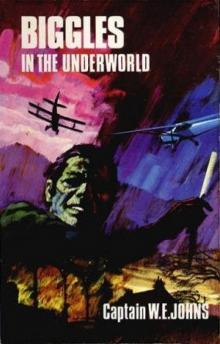 Biggles in the Underworld
Biggles in the Underworld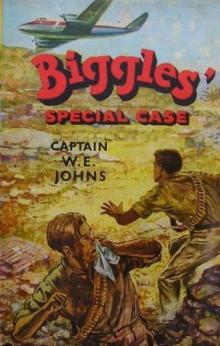 Biggles' Special Case
Biggles' Special Case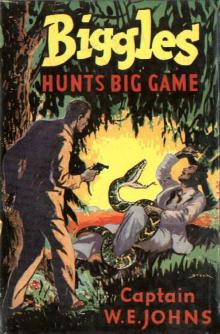 34 Biggles Hunts Big Game
34 Biggles Hunts Big Game 03 Now To The Stars
03 Now To The Stars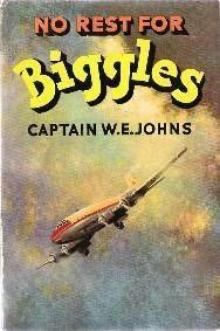 55 No Rest For Biggles
55 No Rest For Biggles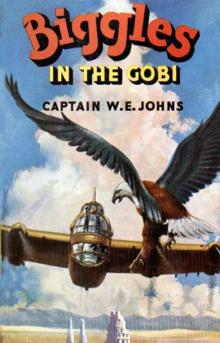 46 Biggles in the Gobi
46 Biggles in the Gobi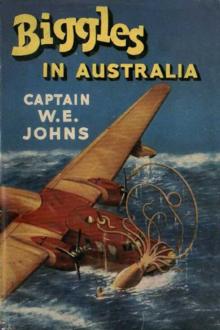 52 Biggles In Australia
52 Biggles In Australia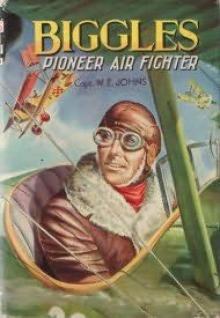 51 Biggles Pioneer Air Fighter
51 Biggles Pioneer Air Fighter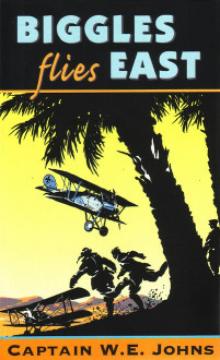 05 Biggles Flies East
05 Biggles Flies East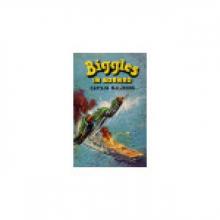 28 Biggles In Borneo
28 Biggles In Borneo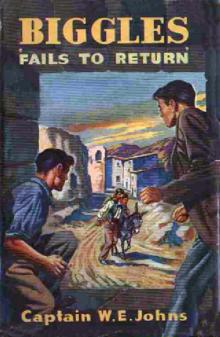 29 Biggles Fails to Return
29 Biggles Fails to Return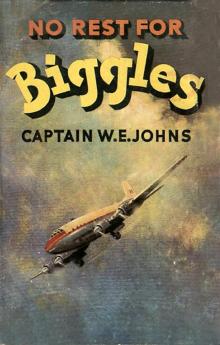 55 No Rest For Biggles (v2)
55 No Rest For Biggles (v2)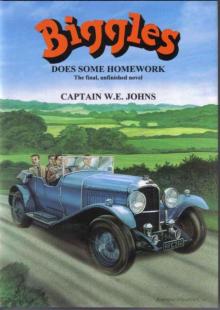 Biggles Does Some Homework
Biggles Does Some Homework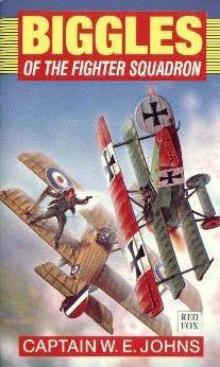 Biggles of the Camel Squadron
Biggles of the Camel Squadron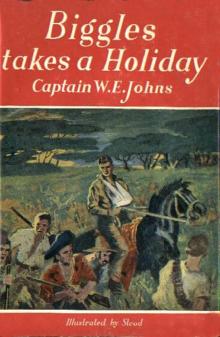 35 Biggles Takes A Holiday
35 Biggles Takes A Holiday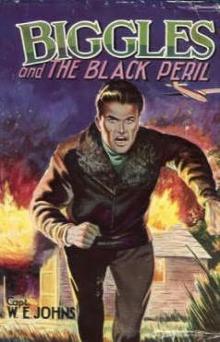 Biggles And The Black Peril (06)
Biggles And The Black Peril (06)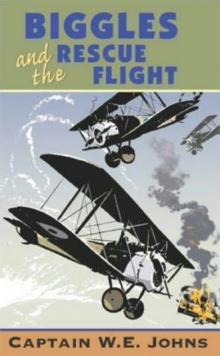 17 Biggles And The Rescue Flight
17 Biggles And The Rescue Flight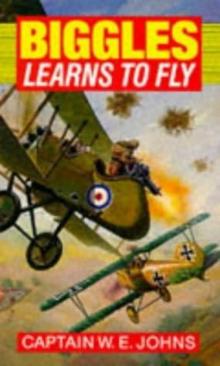 Biggles Learns To Fly
Biggles Learns To Fly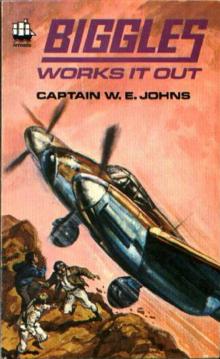 40 Biggles Works It Out
40 Biggles Works It Out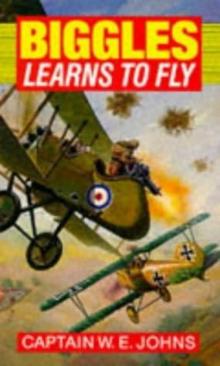 05 Biggles Learns To Fly
05 Biggles Learns To Fly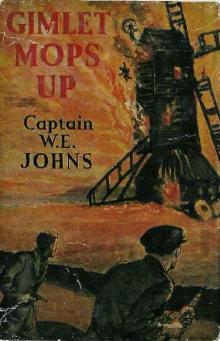 04 Gimlet Mops Up
04 Gimlet Mops Up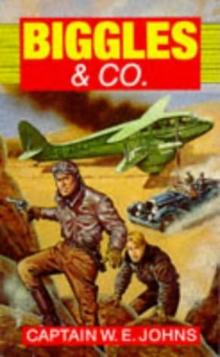 10 Biggles and Co
10 Biggles and Co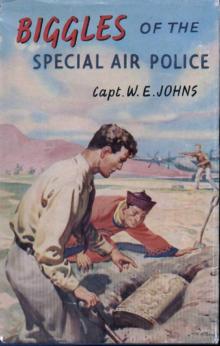 47 Biggles Of The Special Air Police
47 Biggles Of The Special Air Police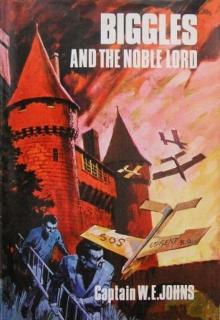 Biggles and the Noble Lord
Biggles and the Noble Lord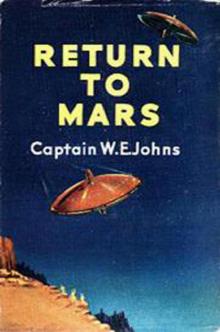 T2 Return To Mars
T2 Return To Mars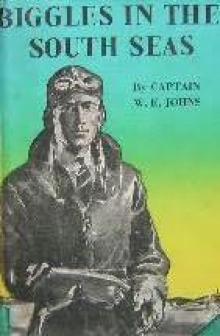 21 Biggles In the South Seas
21 Biggles In the South Seas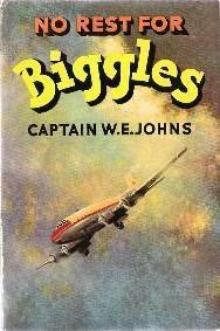 No Rest For Biggles
No Rest For Biggles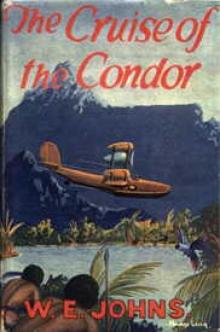 Biggles In The Cruise Of The Condor (02)
Biggles In The Cruise Of The Condor (02)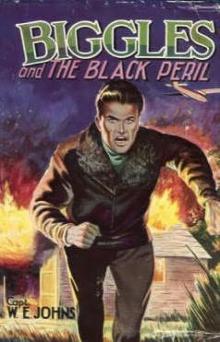 06 Biggles And The Black Peril
06 Biggles And The Black Peril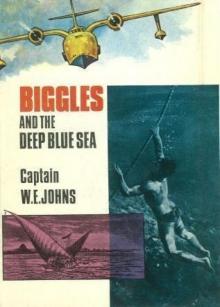 Biggles and the Deep Blue Sea
Biggles and the Deep Blue Sea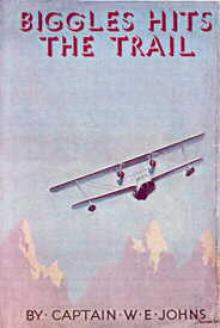 06 Biggles Hits The Trail
06 Biggles Hits The Trail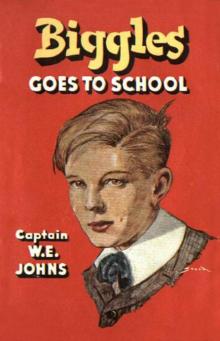 39 Biggles Goes To School
39 Biggles Goes To School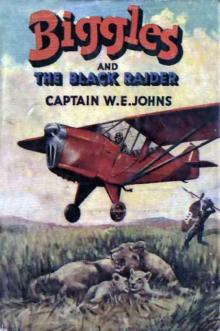 44 Biggles and the Black Raider
44 Biggles and the Black Raider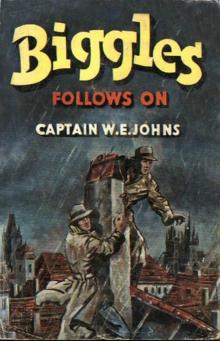 42 Biggles Follows On
42 Biggles Follows On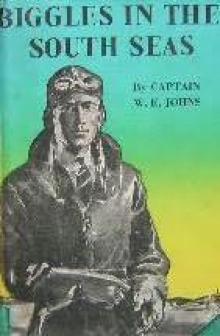 Biggles In the South Seas
Biggles In the South Seas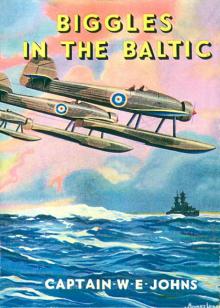 21 Biggles In The Baltic v3
21 Biggles In The Baltic v3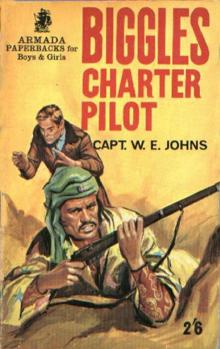 27 Biggles - Charter Pilot
27 Biggles - Charter Pilot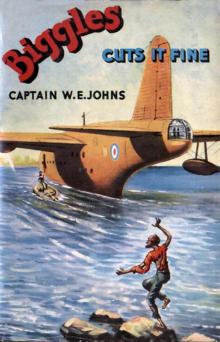 49 Biggles Cuts It Fine
49 Biggles Cuts It Fine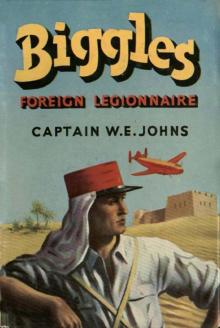 51 Biggles Foreign Legionaire
51 Biggles Foreign Legionaire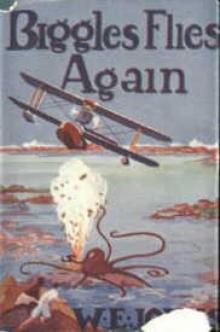 04 Biggles Flies Again
04 Biggles Flies Again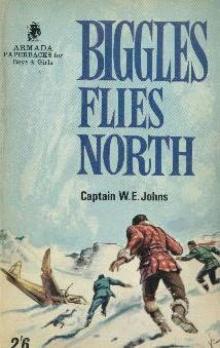 16 Biggles Flies North
16 Biggles Flies North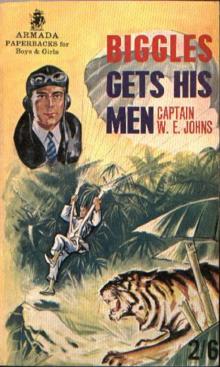 37 Biggles Gets His Men
37 Biggles Gets His Men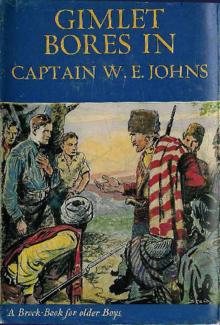 07 Gimlet Bores In
07 Gimlet Bores In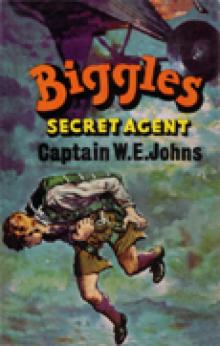 19 Biggles Secret Agent
19 Biggles Secret Agent 32 Biggles In The Orient
32 Biggles In The Orient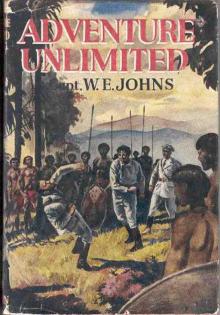 Adventure Unlimited
Adventure Unlimited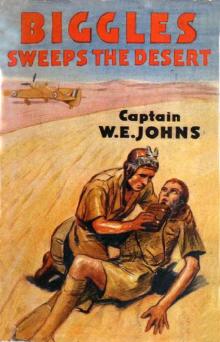 26 Biggles Sweeps The Desert
26 Biggles Sweeps The Desert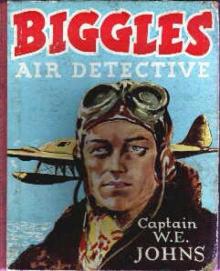 Biggles Air Detective (43)
Biggles Air Detective (43) 36 Biggles Breaks The Silence
36 Biggles Breaks The Silence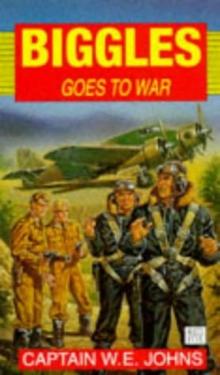 14 Biggles Goes To War
14 Biggles Goes To War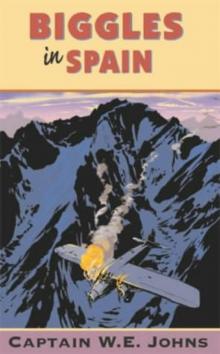 18 Biggles In Spain
18 Biggles In Spain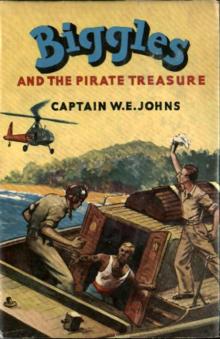 50 Biggles and the Pirate Treasure
50 Biggles and the Pirate Treasure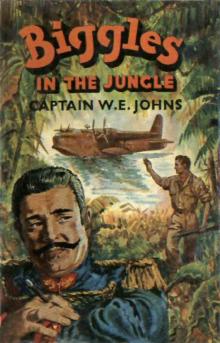 25 Biggles In The Jungle
25 Biggles In The Jungle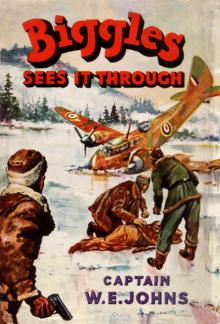 23 Biggles Sees It Through
23 Biggles Sees It Through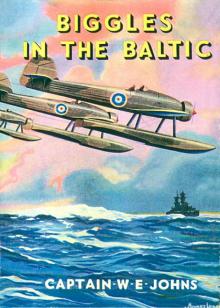 21 Biggles In The Baltic
21 Biggles In The Baltic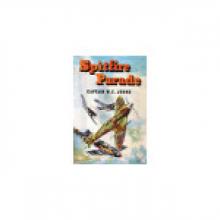 24 Spitfire Parade
24 Spitfire Parade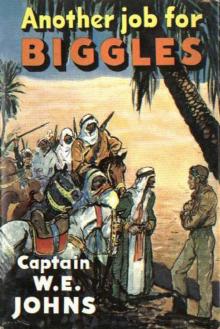 38 Another Job For Biggles
38 Another Job For Biggles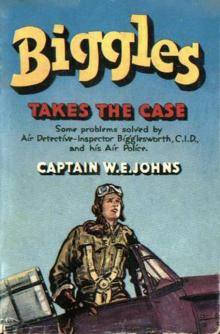 41 Biggles Takes The Case
41 Biggles Takes The Case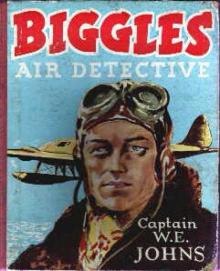 43 Biggles Air Detective
43 Biggles Air Detective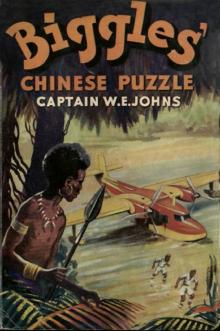 53 Biggles Chinese Puzzle
53 Biggles Chinese Puzzle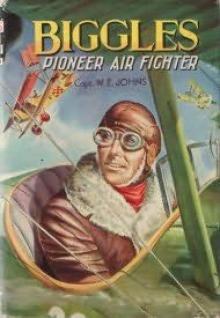 Biggles Pioneer Air Fighter (51)
Biggles Pioneer Air Fighter (51)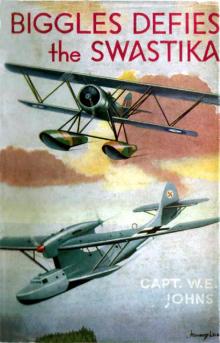 22 Biggles Defies The Swastika
22 Biggles Defies The Swastika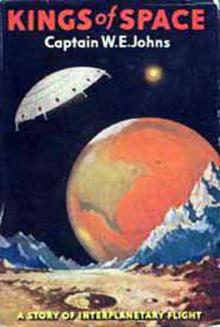 01 Kings Of Space
01 Kings Of Space